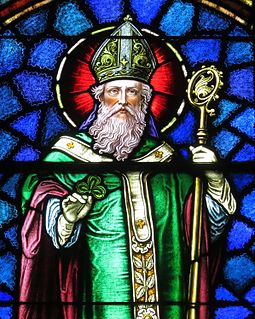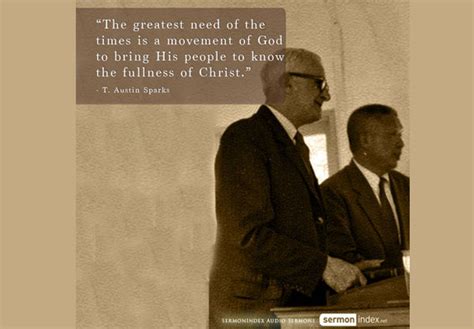A Quote by Tullian Tchividjian
Sanctification consists of the daily realization that in Christ we have died, and in Christ we have been raised.
Quote Topics
Related Quotes
Outside of Christ, I am only a sinner, but in Christ, I am saved. Outside of Christ, I am empty; in Christ, I am full. Outside of Christ, I am weak; in Christ, I am strong. Outside of Christ, I cannot; in Christ, I am more than able. Outside of Christ, I have been defeated; in Christ, I am already victorious. How meaningful are the words, "in Christ."
What is the mark of a Christian? That he be purified of all defilement of the flesh and of the spirit in the Blood of Christ, perfecting sanctification in the fear of God and the love of Christ, and that he have no blemish nor spot nor any such thing; that he be holy and blameless and so eat the Body of Christ and drink His Blood; for 'he that eateth and drinketh unworthily, eateth and drinketh judgement to himself.' What is the mark of those who eat the Bread and drink the Cup of Christ? That they keep in perpetual remembrance Him who died for us and rose again.
The Apostle Peter preaching on the day of Pentecost of the risen Savior, says, "God hath made that same Jesus, whom ye have crucified, both Lord and Christ." And He speaks of Him as the anointed One, exalted at God's right hand. The Gospel is the Gospel of the Risen Christ. There would be no Gospel for sinners if Christ had not been raised. So the apostle says, "If Christ be not raised, your faith is vain; ye are yet in your sins"
Christ prays in me, Christ works in me, Christ thinks in me, Christ looks through my eyes, Christ speaks through my words, Christ works with my hands, Christ walks with my feet, Christ loves with my heart. As St Paul's prayer was: I belong to Christ and nothing will separate me from the love of Christ. It was that oneness, oneness with God in the Holy Spirit.
Justification and sanctification are both God's work, and while they can and must be distinguished, the Bible won't let us separate them. Both are gifts of our union with Christ, and within this double-blessing, justification is the root of sanctification and sanctification is the fruit of justification.
But discipleship never consists in this or that specific action: it is always a decision, either for or against Jesus Christ...Christ speaks to us exactly as he spoke to them. It was not as though they first recognized him as the Christ and then received his command. They believed his word and command and recognized him as the Christ--in that order.
Now, the first preachers of the Christ evangel preached Christ. They did not, in the first place, preach salvation or sanctification or forgiveness, or judgment or heaven. That does not mean that they did not preach those things: they did; but not in the first place. They preached Christ, and all those things were included in the preaching of Christ.



































